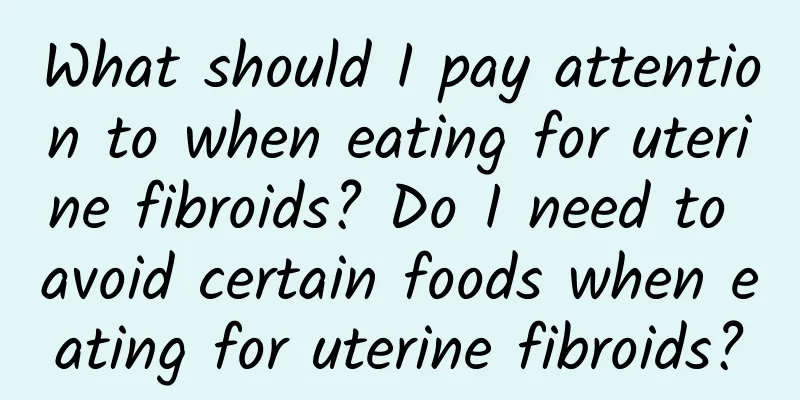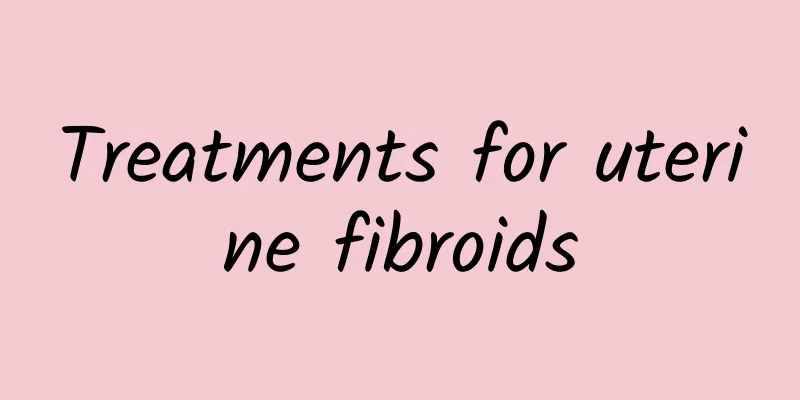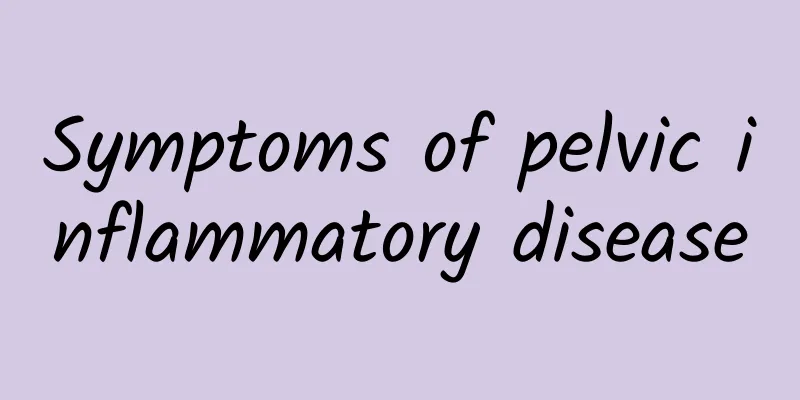What should I pay attention to when eating for uterine fibroids? Do I need to avoid certain foods when eating for uterine fibroids?

|
Uterine fibroids are a common benign tumor in women. They usually grow on the uterine wall and often cause symptoms such as irregular menstruation, abdominal pain, and infertility. For women with uterine fibroids, eating habits play an important role. What should patients with uterine fibroids pay attention to? Do patients with uterine fibroids need to avoid certain foods? This article will answer these questions one by one. 1. Eat more fiber-rich foods Fiber-rich foods are essential for patients with uterine fibroids. Vegetables, fruits, and whole grains are the main sources of fiber-rich foods. Fiber can promote intestinal peristalsis, help excrete waste from the body, and reduce the intestinal absorption of estrogen, thereby helping to alleviate the symptoms of uterine fibroids. Fiber can also lower cholesterol, control weight, and prevent obesity, and it plays a positive role in the treatment of uterine fibroids. 2. Eat less high-fat foods High-fat foods should be avoided by patients with uterine fibroids. High-fat foods can increase the level of estrogen in the body and aggravate the symptoms of uterine fibroids. In addition, high-fat foods can increase the patient's weight and increase the risk of other diseases such as high blood pressure and diabetes. Patients with uterine fibroids should minimize the intake of animal fats and choose low-fat foods such as fish and beans to maintain their health. 3. Pay attention to supplementing vitamins and minerals Patients with uterine fibroids should be well supplemented with vitamins and minerals in their diet. Vitamins and minerals are essential for maintaining the normal function of the body, can enhance the body's resistance, and help control the growth of uterine fibroids. Patients should eat more foods rich in vitamins C and E, such as citrus fruits, spinach, red dates, etc. In addition, minerals such as calcium, magnesium, and zinc cannot be ignored. Dairy products, tofu, almonds, etc. can be consumed to meet the body's needs. 4. Moderate protein intake Protein is one of the important nutrients needed by the body. Proper protein intake can maintain the normal function of the body and help repair and strengthen tissues. Patients with uterine fibroids should choose high-quality protein foods, such as fish, chicken, soy products, etc. Proper protein intake can help the body better fight the disease. Patients with uterine fibroids need to pay attention to the following points when eating: eat more fiber-rich foods, eat less high-fat foods, pay attention to supplementing vitamins and minerals, and consume protein moderately. These adjustments in eating habits can alleviate the symptoms of uterine fibroids and promote recovery. However, not all diets are suitable for all people. Patients should consult a doctor when adjusting their eating habits and make reasonable adjustments based on individual circumstances to ensure their health. |
>>: What are the examinations before uterine fibroid surgery?
Recommend
I am preparing to have a baby, but what should I do if I have 2nd degree cervical erosion?
I am preparing to have a baby, but what should I ...
Can a bad temper cause delayed menstruation?
Can a bad temper cause delayed menstruation? 1. A...
What are the symptoms of ectopic pregnancy?
For newlyweds, a healthy baby is their most preci...
Gao Yixiang died of sudden cardiac death! Experts teach you a trick to calculate how much exercise you do to stay safe
Artist Gao Yixiang suddenly fell to the ground wh...
How much does bacterial vaginosis treatment cost?
Bacterial vaginosis has the largest number of pat...
Does compression of chocolate cyst hurt? What are the hazards of chocolate cyst?
Although the material life has been greatly impro...
Is hydatidiform mole also considered pregnancy?
Hydatidiform mole is an abnormal pregnancy and a ...
What is the cause of non-menstrual bleeding?
What is the cause of non-menstrual bleeding? Non-...
Why don't empty sacs abort on their own? What should I do if my empty sac is
Many women may experience some symptoms of physic...
Is it serious to have uterine fibroids? What are the common causes of uterine fibroids?
Uterine fibroids: (Hysteromyoma), uterine leiomyo...
What should I pay attention to after ectopic pregnancy surgery?
What should I pay attention to after ectopic preg...
Effective treatment for pelvic peritonitis
Pelvic peritonitis is a common gynecological dise...
Is female cervical erosion contagious? Female cervical erosion is caused by three major causes
Experts point out that cervical erosion in women ...
Diagnosis of adnexitis
Since adnexitis is a gynecological disease caused...
Why is my menstrual period always so scanty and never ends?
Why is my menstrual period always so scanty and n...









